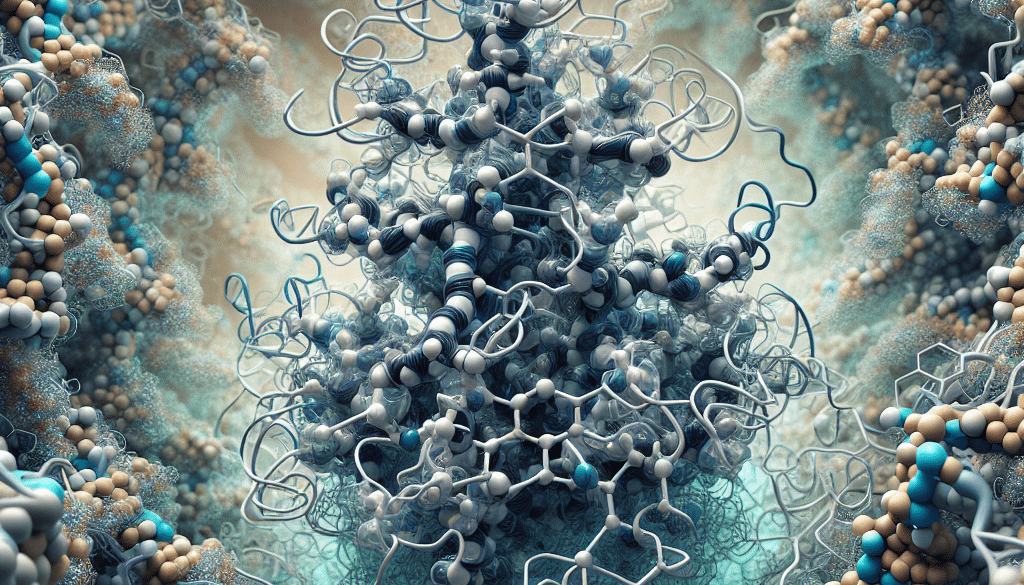What Is Gliadin Peptide?
-
Table of Contents
- Gliadin Peptide: Understanding Its Role and Impact on Health
- What is Gliadin Peptide?
- The Role of Gliadin Peptide in Celiac Disease
- Non-Celiac Gluten Sensitivity and Gliadin
- Research and Case Studies on Gliadin Peptide
- Statistics: Prevalence of Gluten-Related Disorders
- Conclusion: Key Takeaways on Gliadin Peptide
- ETprotein: High-Quality Protein Products
Gliadin Peptide: Understanding Its Role and Impact on Health

Gliadin peptide, a component of gluten, has become a topic of significant interest and concern in both the medical community and the general public. This protein fragment is found in wheat and other grains and is known for its role in celiac disease and other gluten-related disorders. In this article, we will delve into what gliadin peptide is, its effects on health, and the latest research surrounding it.
What is Gliadin Peptide?
Gliadin is a prolamin protein found in wheat and several other cereals within the grass genus Triticum. Prolamins are plant storage proteins, and gliadin specifically is a component of gluten, which is itself a composite of various proteins. Gluten gives dough its elasticity and baked goods their chewy texture. Gliadin peptides are formed during the digestion of gliadin proteins and are the primary triggers for immune responses in certain individuals.
The Role of Gliadin Peptide in Celiac Disease
Celiac disease is an autoimmune disorder that affects the small intestine and is triggered by the ingestion of gluten in genetically predisposed individuals. When people with celiac disease consume gluten, their immune system responds by attacking the small intestine, leading to damage and a range of symptoms and associated conditions.
- Intestinal Damage: The immune response to gliadin peptides can lead to villous atrophy, where the lining of the small intestine is damaged, impairing nutrient absorption.
- Symptoms: Symptoms of celiac disease can include diarrhea, abdominal pain, bloating, weight loss, anemia, and fatigue.
- Associated Conditions: Celiac disease can also lead to other autoimmune disorders, osteoporosis, infertility, neurological conditions, and an increased risk of certain cancers.
Non-Celiac Gluten Sensitivity and Gliadin
Non-celiac gluten sensitivity (NCGS) is a condition in which individuals experience symptoms similar to those of celiac disease upon consuming gluten, but without the autoimmune intestinal damage. The role of gliadin peptides in NCGS is still being researched, but it is believed that they may trigger an innate immune response in certain individuals, leading to symptoms.
Research and Case Studies on Gliadin Peptide
Recent research has focused on understanding the precise mechanisms by which gliadin peptides affect the body. Studies have shown that certain sequences within gliadin peptides are responsible for triggering the immune response in celiac disease. Additionally, case studies have highlighted the variability in symptoms and responses to a gluten-free diet among individuals with gluten-related disorders.
Statistics: Prevalence of Gluten-Related Disorders
Gluten-related disorders are increasingly recognized worldwide. Celiac disease affects approximately 1% of the population globally, though many cases remain undiagnosed. NCGS is thought to be more common, though exact prevalence figures are difficult to determine due to diagnostic challenges.
Conclusion: Key Takeaways on Gliadin Peptide
In summary, gliadin peptide is a significant trigger for celiac disease and may play a role in other gluten-related disorders. Understanding gliadin and its effects on health is crucial for the diagnosis and management of these conditions. Ongoing research continues to shed light on the complex interactions between gliadin peptides and the immune system.
ETprotein: High-Quality Protein Products
If you are looking for high-quality protein products, ETprotein offers a range of organic bulk vegan proteins that are non-GMO and allergen-free. Their products, including rice protein, pea protein, and various seed proteins, cater to a diverse range of industries and dietary needs. For individuals with gluten-related disorders or those seeking gluten-free protein options, ETprotein’s offerings provide safe and nutritious alternatives.
About ETprotein:
ETprotein, a reputable protein and L-(+)-Ergothioneine (EGT) Chinese factory manufacturer and supplier, is renowned for producing, stocking, exporting, and delivering the highest quality organic bulk vegan proteins and L-(+)-Ergothioneine. They include Organic rice protein, clear rice protein, pea protein, clear pea protein, watermelon seed protein, pumpkin seed protein, sunflower seed protein, mung bean protein, peanut protein, and L-(+)-Ergothioneine EGT Pharmaceutical grade, L-(+)-Ergothioneine EGT food grade, L-(+)-Ergothioneine EGT cosmetic grade, L-(+)-Ergothioneine EGT reference grade and L-(+)-Ergothioneine EGT standard. Their offerings, characterized by a neutral taste, non-GMO, allergen-free attributes, with L-(+)-Ergothioneine purity over 98%, 99%, cater to a diverse range of industries. They serve nutraceutical, pharmaceutical, cosmeceutical, veterinary, as well as food and beverage finished product distributors, traders, and manufacturers across Europe, USA, Canada, Australia, Thailand, Japan, Korea, Brazil, and Chile, among others.
ETprotein specialization includes exporting and delivering tailor-made protein powder and finished nutritional supplements. Their extensive product range covers sectors like Food and Beverage, Sports Nutrition, Weight Management, Dietary Supplements, Health and Wellness Products, and Infant Formula, ensuring comprehensive solutions to meet all your protein needs.
As a trusted company by leading global food and beverage brands and Fortune 500 companies, ETprotein reinforces China’s reputation in the global arena. For more information or to sample their products, please contact them and email sales(at)ETprotein.com today.












